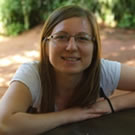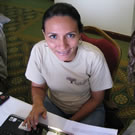Certificate 240: 4 Month Blended Online/Live Non Profit Training Workshop Program
Designing & Funding Nonprofit Projects
These non profit training programs provide cutting-edge information, time-saving templates, expert consultancy & leads you in creating a successful nonprofit project.
| Blended Non Profit Training for Non Profits Program—Including: A 5 Day Live Nonprofit Training Workshop. Last week of September 2018. Pitzer College, Claremont, California. PHASE I: First 3 weeks of September 2018. 1. Pre-workshop: You will have three weeks at home to assess and clearly define local need. 2. Optional, 2-day, pre-workshop field days conducting a participatory needs assessment with our local nonprofit workshop field partner. 3. Followed by the five day nonprofit training workshop; fully design a real non profit project and develop fundraising ideas and management documents. PHASE II: 12 weeks immediately following the live non profit workshop. Post-workshop: Enroll in OL 203 and OL 204 to form a nonprofit project team, design capacity-building workshops and launch your non profit projects. |
|
Advance your Career, Raise Funds and Solve Nonprofit Challenges
The nonprofit program is for non profit and donor staff—and job-seekers wanting to successfully solve community challenges.
|
- developing skill sets for a better job or for a promotion
- hoping to improve donor communications and donations
- wanting to learn to develop nonprofit projects that solve challenges
- seeking time saving techniques for getting everything done
|
What Participants Say:
“I just want to take this opportunity to complement you on the practical ideas, knowledge and vast experience that you continue to share with us on each assignment. Many times your examples are the solution of choice for our community. I have been provided with constant support, practical solutions suitable for my project, feedback specific to our project submissions and unwavering encouragement.” Gillian Primus
“Thank you for all your effort in putting together a great program and all of the program resources. Thank you for everything – for making this possible, for your guidance, and for your continuous optimism and encouragement. I look forward to the opportunity to work with you again in the next session.” Wye Yee Yong.
|
Great Project Design = Extra Funding + Increased Services
This non profit program will lead you in developing a winning, impact oriented nonprofit project to help you:
Design your own Solution-Oriented Nonprofit Projects & Attract Donors
These blended non profit training programs provide cutting-edge information, tools, time-saving templates, non profit training and expert consultancy—and leads you in developing a real non profit project for your organization. You will:
|
| DETAILED INFORMATION: Just scroll down for complete, detailed information about the certificate program. |  |
- 3 weeks pre-workshop. Guided Field Data Collection: Community Needs Assessments. Conduct a needs assessment with a target population in preparation for use in the nonprofit training workshop—guided through distance learning by CSDi staff. We will provide all of the tools and information you need to conduct the needs assessments.
- 5 days. A Face-to-Face Nonprofit Training Workshop. Full Nonprofit Program Design and Development. Working with the CSDi workshop leader, you will use your needs assessment to begin the development of a complete, fundable, launchable project.
- 2 optional field days. Don’t have community access? Two additional,optional field days the Saturday and Sunday prior to the workshop conducting a participatory needs assessment with our local partner at the nonprofit workshop location.
- Completion Certificate. Receive a workshop completion certificate from the Center for Sustainable Development.
PHASE II: 12 weeks
- Post-workshop: Enroll in OL 203 and OL 204 to form a project team, design capacity-building workshops and launch your nonprofit project.
- OL 240 Certificate. Receive a certificate from the Center for Sustainable Development.
- design sustainable nonprofit programs from scratch in response to donor RFPs
- work with a new team who have inherited a ready to launch project get up-to-speed quickly
- get projects back on track which have encountered challenges
- Maybe you don’t have enough fundraising ideas for all of the services you would like to provide
- At times project impact has been low—and sustainability is elusive
- Perhaps your staffing is low and you can’t find enough time to get everything done
- Sometimes non profit programs can be difficult to manage—sometimes they stall mid-term
- It’s possible that your donor communications need to be improved and targeted for better donor engagement
- Empower people in your communities to change their lives,
- develop impact-oriented projects from the ground-up,
- use proven methods that produce sustainable results,
- attract donors, and
- collaborate with course colleagues.
- assess and organize information about target populations
- work with communities to develop long-term, sustainable nonprofit programs
- clearly assess need in a target community
- develop a nonprofit project outline with a problem statement, underlying causes, and solution oriented activities
- research activities that have worked to solve the non profit project challenge
- develop project management documents: log frames, budgets and schedules
- develop a Letter of Inquiry for a donor presentation
- urban agriculturalists
- teenagers visiting a teen drop-in center
- people visiting a food bank
- recent immigrants learning to navigate a new country and a new culture
- members of a town developing a trail system in an adjacent wilderness area
- community members and stakeholders living next to a marine protected area
- members of a small town in Nebraska in the process of revitalizing it
- citizens trying to fund a community health center
- local farmers forming a marketing association
- young families in need of day care
| Methodology. |
|
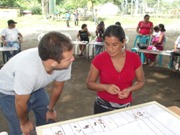 |
This is a blended learning workshop. During the three weeks prior to the five day workshop, guided by CSDi staff, you will conduct a needs assessment with a target population—in the community where you work—in preparation for the workshop. During the live workshop you will spend five days developing and fine-tuning a nonprofit project that will address the specific context that your community faces. At the end of the live workshop, in OL 203 and OL 204 you will return to work with your community—and launch your project— all under the continuing support and guidance of your CSDi workshop leader.
|
| Facilitation | |
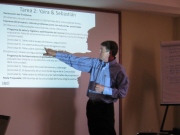 |
The workshop will be led by Tim Magee, CSDi’s Executive Director, who has over 30 years experience in both working with nonprofits and leading workshops for nonprofit organizations. Mr. Magee is the author of A Field Guide to Community Based Adaptation published by Routledge, Oxford, England, and The Beginner’s Guide to Online Donations.
|
| Resources | |
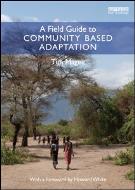 |
• We will provide access to a library of resources for the different challenges that you’re likely to encounter: studies, manuals, guides, and community capacity building resources. • You will be able to download a full range of document templates for you to customize to best address your nonprofit project. • Course facilitators will work individually with you as consultants throughout the program in developing your specific project. |
| Pre-workshop |
Field Assessment of Community Need
|
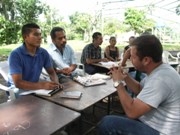 |
The goal of the nonprofit workshops is to guide you in developing a real nonprofit project for your target community. In the 3 weeks before the live workshop the workshop facilitator will guide you in leading a needs assessment with community members. We will provide handbooks and workshop lesson plans for leading the assessment.
|
• conduct a participatory needs assessment with our local workshop partner
Develop a clear problem definition in preparation for Monday’s workshop
• develop a problem outline including a problem statement, underlying causes—and their negative impacts
Local knowledge of needs and solutions
• review the pre-workshop community needs assessments
Information on Potential Nonprofit Solutions
• research solution information for addressing community need
• summarize nonprofit solution information
• complete a preliminary project outline reflecting community need and solution oriented activities
Solution: Identify Sustainable Activities
• research evidence-based project activities
• verify activity effectiveness through scientific evidence
• develop the program and activity solution list
Non profit project tools: Management & funding for nonprofits
• develop a logical framework, detailed budget and a project schedule
• participant project presentations
• project summary: writing a compelling two page fact sheet (LOI)
• how will you organize a donor presentation?
• where will you find donors to present your nonprofit project to?
Sustainability: Capacity Building
• community capacity building
• selecting the first activity for a community capacity building workshop
• two-way knowledge transfer: lesson plans
Impact: Milestones into the Future
• nonprofit project monitoring and evaluation
• develop a long-term project management plan for the community
| Post-workshop |
The Post-workshop Program will Link Theory and Practice
|
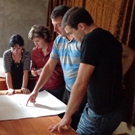 |
3 Simple Steps to Launch Your Project. Enroll in OL 203 and OL 204 and we will support you in launching the project with your community that you developed in the non profit training program. After the live workshop return to your community and the workshop facilitator will provide guidance, consultation, and resources—and will guide you in leading your first capacity building workshop with community members.
|
| Requirements | |
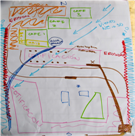 |
|
Read our Workshop Terms and Conditions.
| Location | Claremont, California |
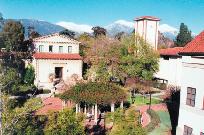 |
Claremont, located at the foot of the beautiful San Gabriel mountains, is 32 miles east of Los Angeles. It became a college town in the late 1880s with the founding of Pomona College; now there are nine colleges and graduate schools. Claremont, with its tree lined streets, is a walking town. Downtown Claremont (“The Village”) boasts sidewalk cafes and a variety of shops and restaurants. Here is Claremont’s Downtown Village Activities Guide.
|
|
This CSDi training program is offered in 4 venues to best suit your needs:
|
- Thank you for all your effort in putting together a great program and all of the program resources. Thank you for everything – for making this possible, for your guidance, and for your continuous optimism and encouragement. We are thankful for your guidance, for coming up with these courses that are relevant, and for your continuous optimism and encouragement. I look forward to the opportunity to work with you again in the next session. Wye Yee Yong
- You have just made our day. Thank you for your usual prompt and generous reviews of our work. Your system is most effective. Helps us to do well. Thank you once again. We are grateful for your mentorship. Carolyn.
- We are thankful for your guidance, for coming up with these courses that are relevant, and for your continuous optimism and encouragement. Wye Yee.
- I just wanted to say how much I enjoyed the certificate program. It truly has helped me further develop my skill set. Meredith.
- I’m so excited with the whole experience this non profit training has provided me. The interaction with the community, sharing their lives, their enthusiasm in participating and opening up to me – and with lots of hope in seeing me engage with them. George
- This program was absolutely awesome! The course content, instruction, example projects, on-line resources and the most valuable – your timely guidance on the assignments were all perfectly done. Boris
What Students Think:
“As you know, as a real beginner in designing non profit projects, without your project example templates I could never have written even a single word by myself.” Moise
“I wish to extend my heartfelt gratitude for the knowledge addition to our careers and the time you take to correct our assignments. This has opened doors for us to venture into designing our own projects, and I’m very sure we shall never go POOR. You’ve indeed taught us how to FISH—not provided FISH.” Dianah
“I’m so excited with the whole experience this non profit training has provided me. The interaction with the community, sharing their lives, their enthusiasm in participating and opening up to me – and with lots of hope in seeing me engage with them.” George
“This non profit training program is an absolute cracker. After undertaking the course, I was able to relate and transform community need into a project idea that could attract program funding. The exercise of transforming goals into a simple logical framework was particularly exhilarating and smooth. It was indeed an eye opener for me.” Perry


